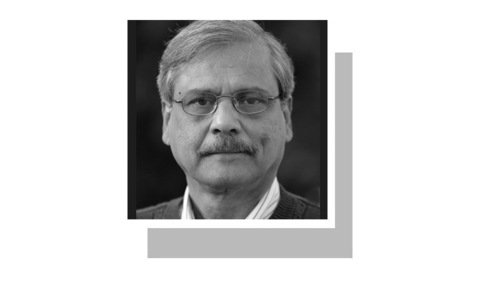Syrian opposition figures met in Saudi Arabia on Wednesday in a bid to form an overhauled delegation to peace talks that analysts say may be more willing to compromise on key demands.
The meeting comes as Iran, Russia and Turkey hold a summit in the Black Sea resort of Sochi, pressing their diplomatic dash to resolve Syria's six-year conflict with a new round of UN-brokered peace talks set to open in Geneva next Tuesday.
The Riyadh meeting is co-chaired by UN Syria envoy Staffan de Mistura and Saudi Foreign Minister Adel al-Jubeir, who said the aim was to reach a “fair solution” to the conflict.
De Mistura said the goal was to give momentum to next week's talks in Geneva by forging a unified opposition delegation, as long demanded by the Syrian government. He said he would travel to Moscow on Thursday for talks with Russian officials.
“I'm always optimistic... especially in this moment,” he said.
The 140 or so delegates from a wide range of opposition platforms are under heavy pressure to row back on some of their more radical demands after a series of recent battlefield victories that gave President Bashar al-Assad's regime the upper hand.
Absent are several former leading figures who were seen as unwilling to compromise. Among them is Riad Hijab, who stepped down as head of the opposition High Negotiations Committee ahead of the meeting complaining that there were “attempts to lower the ceiling of the revolution and prolong the regime.”
Multiple rounds of talks hosted by the UN have failed to bring an end to the war in Syria, which killed more than 330,000 people and forced millions from their homes.
Factions opposed to Assad have been plagued by divisions throughout the maelstrom. Participants in the Riyadh meeting include members of the Istanbul-based National Coalition as well as of rival Cairo- and Moscow-based groups seen as more favourable to the regime, and independent figures.
Qadri Jamil, who heads the Moscow-based group, on Wednesday announced he would not be attending the talks, citing what he said was the Syrian opposition's inability to agree on “the bases and principles” of their stance at the Saudi summit.
The National Coalition meanwhile said Jamil had pulled out after “disagreement over an article on Bashar al-Assad stepping down with the start of a transitional phase” in Syria.
Forming 'the right opposition'
Russian Foreign Minister Sergei Lavrov said he expected that the withdrawal of Hijab and other hardliners in recent days would “help the Syria-based and foreign-based opposition unite on a constructive basis.”
Observers said it could clear the way for a new negotiating team that would water down some of the opposition's longstanding demands, notably Assad's immediate ouster.
His fate has been one of the chief obstacles to progress in peace talks, with the opposition demanding he step down at the start of any transition.
“Riyadh is going to come out with a group, an agreement, on the opposition's proposal for the constitution and for parliamentary elections,” said Randa Slim of the Middle East Institute think-tank. “Gone is any kind of emphasis on political transition or on Assad,” she added.
The outcome of the Riyadh meeting would be “the right opposition that will agree to sign off on the deal that's going to be negotiated,” she said.
Ahead of the meeting, dozens of prominent civilian and armed opposition figures appealed to participants not to compromise on the “ouster of Bashar al-Assad and his gang”. “No one should back down or quietly circumvent” it, they said in an online statement.
HNC member Yehya al-Aridi acknowledged some participants, notably the Moscow platform, were more flexible on the president's future. But they “do not represent the choices of the revolution or the Syrian people,” Aridi told AFP.
And Hisham Marwah, another National Coalition member, said his group's “positions toward Assad have not changed”. “Whoever is betting on the Riyadh conference to legitimise the presence of Assad is delusional,” Marwah told AFP.













































